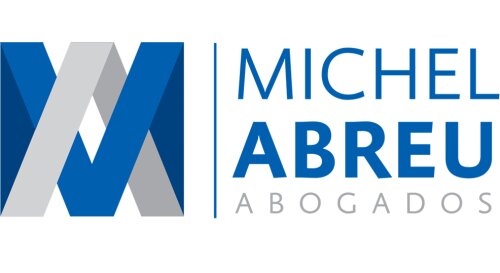Best International Lawyers in Punta Cana
Share your needs with us, get contacted by law firms.
Free. Takes 2 min.
List of the best lawyers in Punta Cana, Dominican Republic
About International Law in Punta Cana, Dominican Republic
The Dominican Republic is a popular tourist destination, known for its beautiful beaches in areas such as Punta Cana. International law within this context pertains to the laws that regulate activities which go beyond national borders. This includes trade regulations, immigration issues, international contracts, and cross-border criminal activities. Punta Cana, being a cosmopolitan region with a diverse and international population, frequently encounters issues that fall under the purview of international law, making it a unique and pivotal area for international legal matters.
Why You May Need a Lawyer
Individuals and businesses in Punta Cana may require legal assistance for a variety of reasons involving international law. Common situations include:
- Dealing with cross-border business transactions and contracts.
- Navigating immigration laws and residency requirements.
- Addressing disputes involving international clients or entities.
- Engaging in international real estate transactions.
- Understanding tax implications for international incomes.
- Protecting intellectual property rights in a foreign jurisdiction.
- Handling international family law issues, such as custody or marriage.
Local Laws Overview
While Punta Cana operates under the broader legal framework of the Dominican Republic, it is important to understand the specific implications of international law within the region:
- Immigration and Residency: The Dominican Republic has specific visa and residency requirements for foreigners, especially those wishing to work or retire in the country.
- Business Law: Foreign contractors and businesses must adhere to local laws regarding registration and taxation, as well as international trade agreements the Dominican Republic is part of.
- Environmental Regulations: Given the region's reliance on tourism, strict environmental laws may impact international entities looking to develop properties.
- Anti-Corruption Laws: Businesses must ensure compliance with local and international anti-corruption standards.
Frequently Asked Questions
What are the requirements for obtaining residency in the Dominican Republic?
There are several residency options including temporary, permanent, and investment-based residencies. Each has specific documentation requirements, including proof of financial means and background checks.
Can foreigners own property in Punta Cana?
Yes, foreigners can own property in the Dominican Republic just like locals. However, hiring a knowledgeable lawyer is recommended to navigate the purchasing process.
How can I start a business in Punta Cana?
To start a business, foreigners need to comply with local business laws including registration, obtaining permits, and following tax regulations.
What taxes do foreign residents need to pay?
Foreign residents are subject to taxes on Dominican sourced income. It's vital to understand double taxation agreements that might exist between the Dominican Republic and your home country.
How are international divorces handled?
The Dominican Republic recognizes international divorces but having legal counsel ensures the foreign judgment is enforceable locally.
What should I do if I need an interpreter for legal processes?
Many legal professionals in Punta Cana offer services in multiple languages and can provide referrals for reputable interpreters where necessary.
How is intellectual property protected internationally?
The Dominican Republic is a signatory to various international intellectual property treaties; enforcement often requires knowledgeable legal support to navigate both local and international law.
Are there specific environmental laws affecting international developers?
Yes, there are stringent regulations aimed at protecting the coastal and marine environments, which developers must comply with when initiating projects in Punta Cana.
What is the process for settling international trade disputes?
Arbitration is often the preferred method for resolving international trade disputes, and Punta Cana’s legal infrastructure supports this process.
How do local customs affect international law proceedings?
Cultural understanding is crucial in international law, and local legal professionals can provide guidance on customs that may influence legal processes.
Additional Resources
In seeking legal assistance, the following resources can prove invaluable:
- Dominican Ministry of Foreign Affairs: Provides resources on diplomatic relations and international agreements.
- Consulates and Embassies: Offer legal assistance for citizens abroad.
- Local Legal Aid Organizations: Provide guidance and sometimes legal representation for those in need.
- International Bar Association: Provides a global network of legal professionals.
Next Steps
If you believe you need legal assistance in International matters while in Punta Cana, consider the following steps:
- Assess the specific legal issue you are facing and gather all relevant documentation.
- Research local law firms specializing in international law, focusing on their experience and reputation.
- Schedule consultations with a few lawyers to discuss your situation, understand their approach, and evaluate your comfort level with them.
- Choose a lawyer based on their expertise, communication skills, and fees.
- Work closely with your legal advisor, providing them with all necessary information to represent your interests effectively.
Lawzana helps you find the best lawyers and law firms in Punta Cana through a curated and pre-screened list of qualified legal professionals. Our platform offers rankings and detailed profiles of attorneys and law firms, allowing you to compare based on practice areas, including International, experience, and client feedback.
Each profile includes a description of the firm's areas of practice, client reviews, team members and partners, year of establishment, spoken languages, office locations, contact information, social media presence, and any published articles or resources. Most firms on our platform speak English and are experienced in both local and international legal matters.
Get a quote from top-rated law firms in Punta Cana, Dominican Republic — quickly, securely, and without unnecessary hassle.
Disclaimer:
The information provided on this page is for general informational purposes only and does not constitute legal advice. While we strive to ensure the accuracy and relevance of the content, legal information may change over time, and interpretations of the law can vary. You should always consult with a qualified legal professional for advice specific to your situation.
We disclaim all liability for actions taken or not taken based on the content of this page. If you believe any information is incorrect or outdated, please contact us, and we will review and update it where appropriate.










